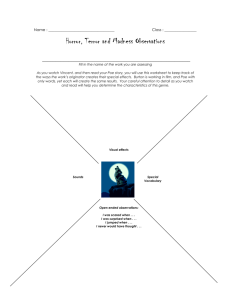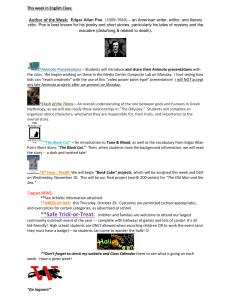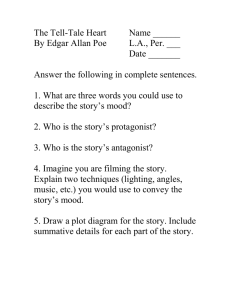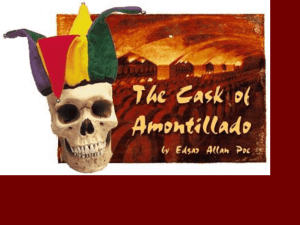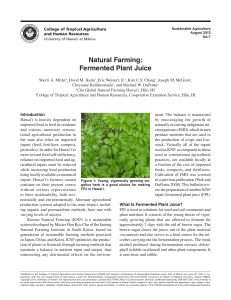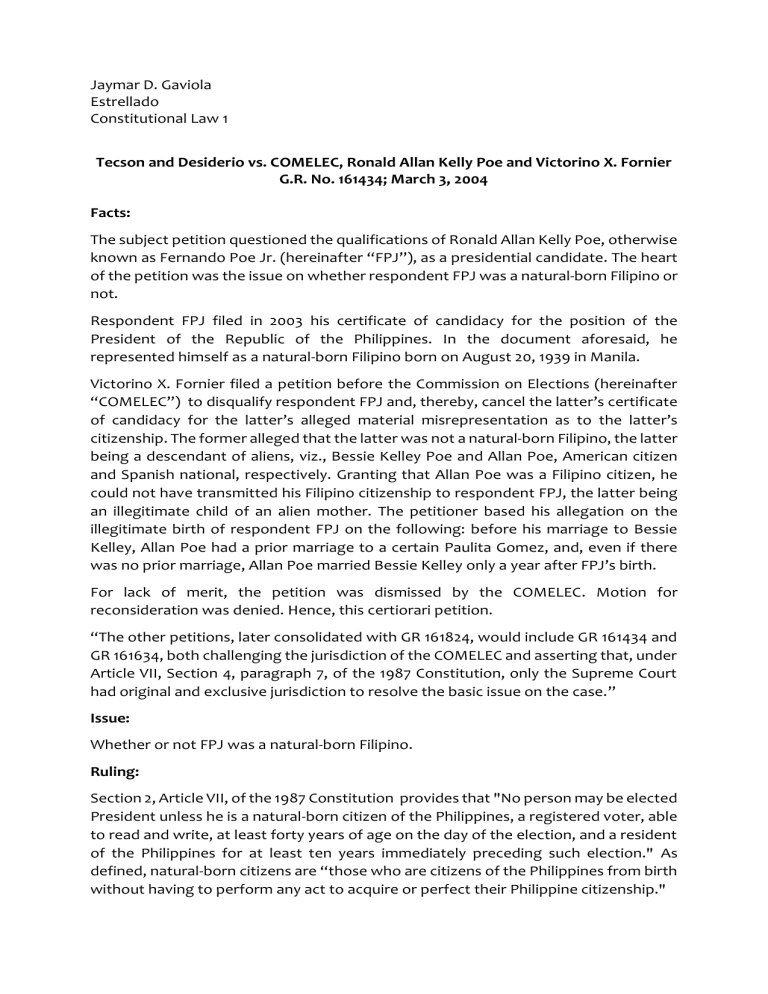
Jaymar D. Gaviola Estrellado Constitutional Law 1 Tecson and Desiderio vs. COMELEC, Ronald Allan Kelly Poe and Victorino X. Fornier G.R. No. 161434; March 3, 2004 Facts: The subject petition questioned the qualifications of Ronald Allan Kelly Poe, otherwise known as Fernando Poe Jr. (hereinafter “FPJ”), as a presidential candidate. The heart of the petition was the issue on whether respondent FPJ was a natural-born Filipino or not. Respondent FPJ filed in 2003 his certificate of candidacy for the position of the President of the Republic of the Philippines. In the document aforesaid, he represented himself as a natural-born Filipino born on August 20, 1939 in Manila. Victorino X. Fornier filed a petition before the Commission on Elections (hereinafter “COMELEC”) to disqualify respondent FPJ and, thereby, cancel the latter’s certificate of candidacy for the latter’s alleged material misrepresentation as to the latter’s citizenship. The former alleged that the latter was not a natural-born Filipino, the latter being a descendant of aliens, viz., Bessie Kelley Poe and Allan Poe, American citizen and Spanish national, respectively. Granting that Allan Poe was a Filipino citizen, he could not have transmitted his Filipino citizenship to respondent FPJ, the latter being an illegitimate child of an alien mother. The petitioner based his allegation on the illegitimate birth of respondent FPJ on the following: before his marriage to Bessie Kelley, Allan Poe had a prior marriage to a certain Paulita Gomez, and, even if there was no prior marriage, Allan Poe married Bessie Kelley only a year after FPJ’s birth. For lack of merit, the petition was dismissed by the COMELEC. Motion for reconsideration was denied. Hence, this certiorari petition. “The other petitions, later consolidated with GR 161824, would include GR 161434 and GR 161634, both challenging the jurisdiction of the COMELEC and asserting that, under Article VII, Section 4, paragraph 7, of the 1987 Constitution, only the Supreme Court had original and exclusive jurisdiction to resolve the basic issue on the case.” Issue: Whether or not FPJ was a natural-born Filipino. Ruling: Section 2, Article VII, of the 1987 Constitution provides that "No person may be elected President unless he is a natural-born citizen of the Philippines, a registered voter, able to read and write, at least forty years of age on the day of the election, and a resident of the Philippines for at least ten years immediately preceding such election." As defined, natural-born citizens are “those who are citizens of the Philippines from birth without having to perform any act to acquire or perfect their Philippine citizenship." The birthdate of FPJ appeared to fall under the regime of 1935 Constitution. Four modes of acquiring citizenship were then recognized, viz., naturalization, res judicata, jus soli, and jus sanguinis. For a person to qualify as a natural-born Filipino, he must have acquired citizenship through jus soli or jus sanguinis. However, jus soli later on lost its recognition. “With the adoption of the 1935 Constitution and the reversal of Roa in Tan Chong vs. Secretary of Labor30 (1947), jus sanguinis or blood relationship would now become the primary basis of citizenship by birth.” Based on evidence presented by the petitioner, Lorenzo Pou, the father of Allan Poe, was the earliest established direct ascendant of FPJ. As evidence of FPJ’s paternal grandfather’s Filipino citizenship, a copy of his death certificate was presented. Therein, the decedent was identified as a resident citizen. Conversely, in the birth certificate of the father of FPJ, Lorenzo Pou was entered as Español. Also presented by the petitioner was an “’uncertified’ copy of a supposed certificate of the alleged marriage of Allan F. Poe and Paulita Gomez on 05 July 1936.” “The marriage certificate of Allan F. Poe and Bessie Kelley reflected the date of their marriage to be on 16 September 1940. In the same certificate, Allan F. Poe was stated to be twenty-five years old, unmarried, and a Filipino citizen, and Bessie Kelley to be twenty-two years old, unmarried, and an American citizen. The birth certificate of FPJ, would disclose that he was born on 20 August 1939 to Allan F. Poe, a Filipino, twentyfour years old, married to Bessie Kelly, an American citizen, twenty-one years old and married.” From the documents of public record that were presented, the conclusions drawn were the following: (1) The parents of FPJ were Allan F. Poe and Bessie Kelley; (2) FPJ was born to them on 20 August 1939; (3) Allan F. Poe and Bessie Kelley were married to each other on 16 September, 1940; (4) The father of Allan F. Poe was Lorenzo Poe; and (5) At the time of his death on 11 September 1954, Lorenzo Poe was 84 years old. Based on the foregoing, the petitions were dismissed. Portion of the decision, as penned by Justice Vitug, that is pertinent to the issue at hand reads: “But while the totality of the evidence may not establish conclusively that FPJ is a natural-born citizen of the Philippines, the evidence on hand still would preponderate in his favor enough to hold that he cannot be held guilty of having made a material misrepresentation in his certificate of candidacy in violation of Section 78, in relation to Section 74, of the Omnibus Election Code. Fornier has utterly failed to substantiate his case before the Court, notwithstanding the ample opportunity given to the parties to present their position and evidence, and to prove whether or not there has been material misrepresentation, which, as so ruled in Romualdez-Marcos vs. COMELEC, must not only be material, but also deliberate and willful.” Source: https://lawphil.net/judjuris/juri2004/mar2004/gr_161434_2004.html


